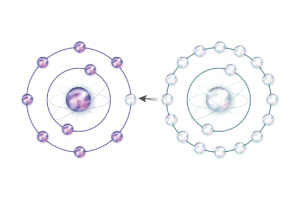

Pine bark extract is made from the bark of maritime pine trees. Pinus pinaster is a type of pine tree native to areas of the Mediterranean, including France, Spain, Portugal, and Morocco. Commonly, these trees are known as maritime pines or cluster pines. The liquid extract of its bark is used to treat several diseases, including a type of arthritis. It is often processed into a powdered form and used.
Rich in plant pigments called bioflavonoids, several research studies on pine bark extract have found that some of these bioflavonoids have anti-inflammatory, antimicrobial, and antioxidant properties. Maritime pines are also known to contain health-promoting plant compounds like vitamins, polyphenols, and other phytonutrients. Pine bark extract is particularly rich in polyphenols, which are responsible for its health-promoting benefits.
Pine Bark Extract Benefits for Health
Test-tube and studies conducted on animals from the past few decades have found encouraging results to support the health-promoting benefits of pine bark extract. Here are some health benefits of pine bark extract.
1. May Strengthen Immune Defenses
In the UK, pine bark herbal extract is available under the trade name Pycnogenol®. Due to its anti-inflammatory effects, researchers are beginning to investigate Pycnogenol as a possible therapeutic option for the novel coronavirus (SARS-CoV-2), which causes the disease COVID-19. The goal here is to be able to benefit from pine bark extract’s anti-inflammatory properties to help people recover faster from COVID-19 and alleviate the risk for long-term complications.
2. May Help Manage Asthma
A few older studies found favorable effects of Pycnogenol’s ability to alleviate asthma symptoms in people. However, these studies were too small in size to make definitive conclusions about the effectiveness of pine bark as a herbal supplement. Pine bark extract, when taken along with your regular asthma control medicine, may help you become less dependent on your inhaler. It might also possibly help you manage your symptoms better. But do bear in mind that this is not a replacement for your regular medicines.
3. May Improve Heart Health
Many studies have found that pine bark, when supplemented with Pycnogenol, appears to help reduce some of the risk factors that can increase the chance for a heart attack. These include limiting the buildup of fat, reducing oxidative stress and the likelihood of blood clots, and improving venous function. On top of that, it is also possible that pine bark may offset certain negative side effects of chronic diseases like diabetes and metabolic syndrome. All of these are because of their ability to fight inflammation and promote blood vessel relaxation. Although pine bark extract appears to support the mechanisms of heart health, it is still unclear how safe and effective it is as a treatment for specific conditions.
4. May Act as a Brain Booster
A number of well-researched studies have shown pine bark extract to be beneficial for cognitive function and this isn’t limited to only older people. A daily dose of pine bark extract has proved to improve mental function and memory in healthy adults. Apparently, this even helps students perform better in exams.
5. May Improve Your Skin
Pine bark extract for skin may help protect your dermis from sun damage, reduce hyperpigmentation, and even help your skin barrier function more effectively -thanks to its antioxidant and anti-inflammatory properties. However, please be sure to consult your doctor before adding pine bark extract to your skincare regimen.
Side Effects of Pine Barks
Currently, there’s little evidence to suggest that pine bark has any major side effect on the general population. The good news is that it has been perceived well by most patients in clinical trials. Minor side-effects include an upset stomach and headache. Pine bark may lower blood pressure and blood sugar level and these effects have also been reported in some RCTs. This is exactly why you need to be cautious before taking pine bark if you have hypertension or diabetes. We do not know yet what the best dose to use is.
As we have discussed earlier, pine bark extract is being studied as a therapeutic option to treat many different conditions. Its abilities to reduce inflammation and act as an antioxidant make it a great option to help treat chronic diseases.
Conclusion
Keeping everything in view, pine bark can be considered safe when used in recommended/prescribed amounts. Those who are pregnant, older, immunosuppressed, or taking other medications should avoid pine bark extracts. Also, it is suggested to consult a doctor before usage for the right dose.




